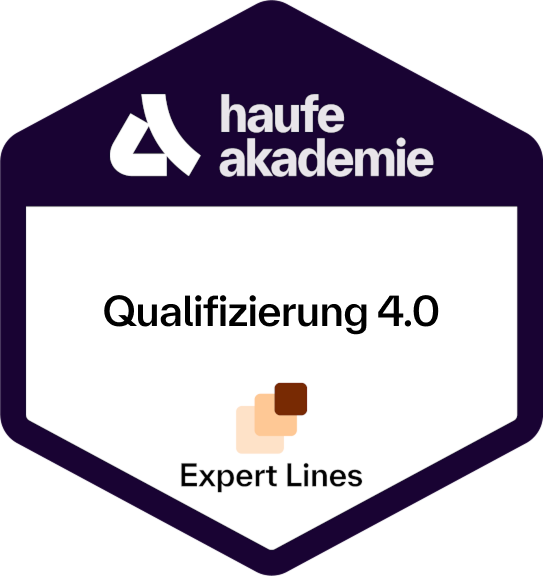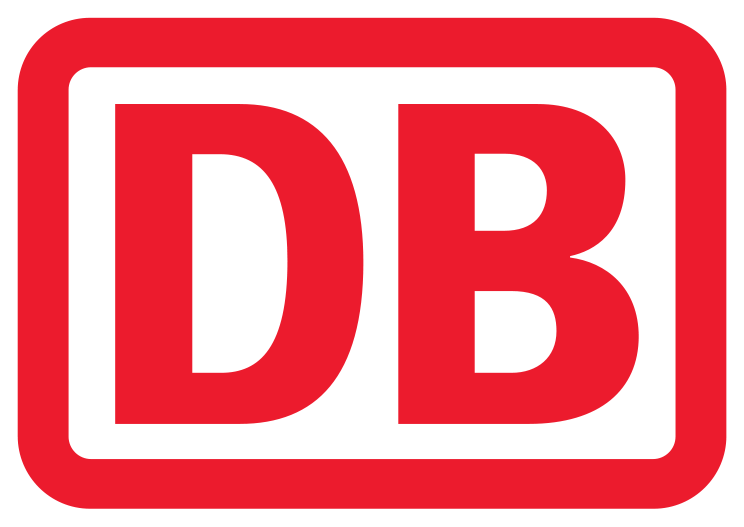Further training certified Social Media Manager
Social media: strategy, content, channels, AI, and KPIs

Certified by the Hochschule der Wirtschaft für Management (HdWM), Mannheim

This further training course was designed in cooperation with the Mannheim University of Applied Management Sciences and meets the university's quality standards in terms of overall concept, content, trainers and examination. As a result, participants benefit from high-quality qualifications with guaranteed topicality, high practical relevance and excellent trainers.
The training is presented in a short kick-off video. You will receive a task to prepare you for the training.
- Social media basics.
- Markets are conversations, Wor(l)d of Mouth.
- The most important trends in media use & the most important platforms.
- Content marketing & social media.
- Strategy & concept development.
- How does this work in practice?
- The importance of visual communication.
- Influencer marketing.
- Excursus: legal issues, GDPR.
- Monitoring & Evaluation.
You will receive one hour of coaching from the trainer to answer individual / company-specific questions.
Lessons Learned:
To prepare for your final exam, you will receive a summary of the exam-relevant content after the classroom training.
Contents
Before training:
The training is presented in a short kick-off video. You will receive a task to prepare you for the classroom training.
Classroom training (4 days):
Social media basics
- Basics.
- Change in communication behavior & cultural change?
- Effects & consequences of social media for communication.
Markets are conversations, Wor(l)d of Mouth
- "Disruptive Schema", Word of Mouth & Storytelling, the new "5 Ps" in marketing.
- Have journalists had their day as traditional gatekeepers?
- User-generated content is changing the customer journey! Brands are becoming "broadcasters".
The most important trends in media use & the most important platforms
- How is media use changing?
- Digression: The potential of artificial intelligence for social media marketing – brief introduction to AI prompt cheats, AI in strategy development, tips for AI image creation + tools that help organize content marketing work
- What role do video & moving images play?
- Facebook, X (formerly Twitter), Xing, LinkedIn, Instagram, TikTok, YouTube, WhatsApp, blogs & Co.
- Figures, data, facts & differences, B2C vs. B2B?
Content marketing & social media
- Definition, arguments, success factors.
- Initial situation B2B and B2C, classic communication vs. content marketing: paid, owned and earned media, success factors for good content: SEO checklist.
Strategy & concept development
- Develop content strategy and concept. Budgeting.
- Define goals and identify and analyze target groups.
- Brand personas and brand values.
- Develop different content for different stages of the customer journey.
How does this work in practice?
- The individual steps from concept to content creation & how AI can help.
- Content workflow, editorial and topic planning, research, idea generation and tools.
- How do I write correctly for social media?
The importance of visual communication
- Pictures & videos on the rise?
Influencer marketing
Excursus: legal issues, GDPR
Monitoring & evaluation
- KPIs & tools, ROI calculation.
- Content evaluation and metrics to assess success.
Practice coaching
You will receive one hour of practical coaching from the trainer to answer individual, company-specific questions.
Lessons Learned
To prepare for your final exam, you will receive a summary of the exam-relevant content via your learning environment after the classroom training.
E-exam
You document your expertise with the final exam.
Learning environment
In your online learning environment, you will find useful information, downloads and extra services for this training course once you have registered.
Your benefit
- You will learn how successful B2B and B2C companies use social media in marketing, PR, HR and sales.
- You will receive concrete tools on how to score points in communication with good content and added value for your target groups.
- You will receive a conceptual framework and specific tips & tricks for developing your own marketing marketing concept.
- You can enter into dialog with the management level with strategic arguments and have approaches for your own social media concept.
Methods
Trainer input, case/best practice examples, exercises, discussion, exchange of experiences, analysis of participants' tweets, group work, work aids and checklists.
Recommended for
Specialists/managers from social media, marketing, communications, Online-Marketing, advertising, PR, customer service, e-commerce, and product management.
Final examination
After the training, you will take the written e-exam. To save you travel costs and time, you can take it on your computer at home or at work. You will be tested on the training content of the face-to-face module (time required: approx. 45 minutes). After successfully passing the final exam, you will receive the recognized certificate from the Haufe Akademie and the Mannheim School of Managementcertified Social Media Manager".
Further recommendations for "Further training certified Social Media Manager:in"
The training is presented in a short kick-off video. You will receive a task to prepare you for the training.
- Social media basics.
- Markets are conversations, Wor(l)d of Mouth.
- The most important trends in media use & the most important platforms.
- marketing marketing & social media.
- Strategy & concept development.
- How does this work in practice?
- The importance of visual communication.
- marketing marketing.
- Excursus: Legal issues, GDPR.
- Monitoring & Evaluation.
You will receive one hour of coaching from the trainer to answer individual/company-specific questions.
Lessons Learned:
To prepare for your final exam, you will receive a summary of the exam-relevant content after the online training.
Contents
Before training:
The training is presented in a short kick-off video. You will receive a task to prepare you for the classroom training.
Classroom training (4 days):
Social media basics
- Basics.
- Change in communication behavior & cultural change?
- Effects & consequences of social media for communication.
Markets are conversations, Wor(l)d of Mouth
- "Disruptive Schema", Word of Mouth & Storytelling, the new "5 Ps" in marketing.
- Have journalists had their day as traditional gatekeepers?
- User-generated content is changing the customer journey! Brands are becoming "broadcasters".
The most important trends in media use & the most important platforms
- How is media use changing?
- Digression: The potential of artificial intelligence for social media marketing – brief introduction to AI prompt cheats, AI in strategy development, tips for AI image creation + tools that help organize content marketing work
- What role do video & moving images play?
- Facebook, X (formerly Twitter), Xing, LinkedIn, Instagram, TikTok, YouTube, WhatsApp, blogs & Co.
- Figures, data, facts & differences, B2C vs. B2B?
Content marketing & social media
- Definition, arguments, success factors.
- Initial situation B2B and B2C, classic communication vs. content marketing: paid, owned and earned media, success factors for good content: SEO checklist.
Strategy & concept development
- Develop content strategy and concept. Budgeting.
- Define goals and identify and analyze target groups.
- Brand personas and brand values.
- Develop different content for different stages of the customer journey.
How does this work in practice?
- The individual steps from concept to content creation & how AI can help.
- Content workflow, editorial and topic planning, research, idea generation and tools.
- How do I write correctly for social media?
The importance of visual communication
- Pictures & videos on the rise?
Influencer marketing
Excursus: legal issues, GDPR
Monitoring & evaluation
- KPIs & tools, ROI calculation.
- Content evaluation and metrics to assess success.
Practice coaching
You will receive one hour of practical coaching from the trainer to answer individual, company-specific questions.
Lessons Learned
To prepare for your final exam, you will receive a summary of the exam-relevant content via your learning environment after the classroom training.
E-exam
You document your expertise with the final exam.
Learning environment
In your online learning environment, you will find useful information, downloads and extra services for this training course once you have registered.
Your benefit
- You will learn how successful B2B and B2C companies use social media in marketing, PR, HR and sales.
- You will receive concrete tools on how to score points in communication with good content and added value for your target groups.
- You will receive a conceptual framework and specific tips & tricks for developing your own marketing marketing concept.
- You can enter into dialog with the management level with strategic arguments and have approaches for your own social media concept.
Methods
Trainer input, case/best practice examples, exercises, discussion, exchange of experiences, analysis of participants' tweets, group work, work aids and checklists.
Recommended for
Specialists/managers from social media, marketing, communications, Online-Marketing, advertising, PR, customer service, e-commerce, and product management.
Final examination
After the training, you will take the written e-exam. To save you travel costs and time, you can take it on your computer at home or at work. You will be tested on the training content of the face-to-face module (time required: approx. 45 minutes). After successfully passing the final exam, you will receive the recognized certificate from the Haufe Akademie and the Mannheim School of Managementcertified Social Media Manager".
Further recommendations for "Further training certified Social Media Manager:in"
1899
33694
- Customized training courses according to your needs
- Directly at your premises or online
- Cost advantage from 5 participants
- We contact you within 24 hours (Mon-Fri)
Start dates and details



 4.6
4.6







